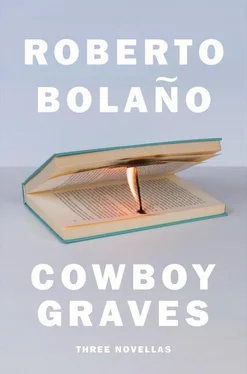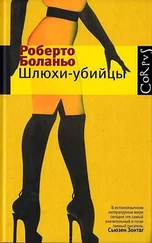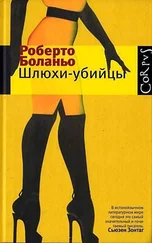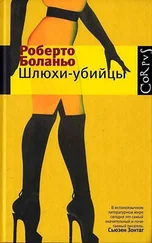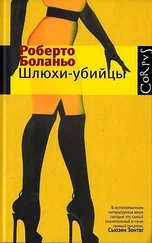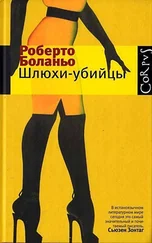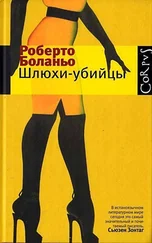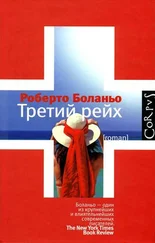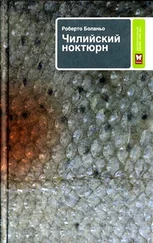My mother read mail-order romance novels sent from Santiago and she read paranormal magazines. My father read only westerns. I read Nicanor Parra and I thought that gave me an advantage. It gave me no advantage at all, of course. Which was more or less what Mónica Vargas told me a few days before I left Chile. Back then, toward the end of 1968, it wasn’t easy to leave one Latin American country and enter another. Even today it’s hard, but back then it was worse. You had to fill out a big stack of papers required for the trip, forms that couldn’t be processed in the small provincial capital where we lived. So we sold everything we had, which wasn’t much—some furniture, more or less—and two weeks before the date of our trip (our first attempt to leave the country) we moved to Santiago, where we stayed with one of my mother’s friends, Rebeca Vargas, a high school teacher and southern transplant. She lived with her younger sister, Mónica Vargas, who was studying at the conservatory.
Mónica was very thin, with long, straight hair and big breasts, and she played the flute. The first night we spent there, we stayed up late talking, and when everyone had gone to bed and we were about to go to bed too (she in her sister’s room and I on the sofa), we went out onto the balcony, maybe to look at the streetlights and the neon signs of Santiago, or to gaze at the mountains by the light of the moon, which looked like a reflector dangling in the abyss. Before that, in the living room or the kitchen, I remember helping her to make another round of tea and bread with avocado and jam (as if that night, my mother and all of us who had stayed up late listening to her talk had worked up an appetite: not for lunch or dinner, but for afternoon tea, which is the appetite of tales and legend), and when she asked me what I wanted to study in Mexico, I said medicine, but I really wanted to be a poet. That’s great, she said, setting out the tea, the milk, the yogurt (it was the first time I’d had yogurt that way, in a container), with a Hilton firmly pinched between her lips or her long fingers with bitten nails. What have you read? The question came as such a surprise that suddenly I had no idea what to say, at a time in my life when I had answers for everything. Nicanor Parra, I said. Ah, Nicanor, said Mónica, as if she knew him and they were dear friends. Poems and Antipoems , Editorial Nascimento, 1954, I said. He’s the only one worth reading, said Mónica, and that was it until we went out onto the balcony. She was holding a cigarette, her last of the night, and I was debating whether to ask her for one, afraid and embarrassed that she would say no because I wasn’t old enough to smoke, though now I know that she wouldn’t have. She was sitting in a wooden folding chair and I was standing, almost with my back to her, staring at the dark city, wishing I never had to leave. Then Mónica said that she was going to loan me a book to read before we left. What book? I asked. Rilke, she said. Letters to a Young Poet . I remember that we looked at each other, or it seemed to me that we did—Mónica actually had her eyes fixed on the hazy mass of Santiago—and I remember that I felt as offended, as humiliated, as if she had refused me a cigarette. I realized that the Letters were her way of advising me not to write poetry; I realized that the Young Poet never wrote anything worthwhile, that at best he’d been killed in some duel or war; I realized that Mónica might talk like Nicanor was her friend but she had no idea how to read him; I realized that Mónica knew that aside from Nicanor Parra ( Mr. Parra), I hadn’t read much in my life. I realized all of this in a second, and I felt like crouching there on the balcony and saying: you’re so right, but you couldn’t be more wrong—not a very Chilean thing to say, though very Mexican. Instead I looked at her and asked for a cigarette. Silently, as if her thoughts were far from that balcony hanging innocently over Santiago, she handed me the pack and then gave me a light. We smoked for a while in silence. She finished hers (she smoked them down to the filter) and I smoked my whole cigarette. Then we shut the door to the balcony and I sat on the sofa waiting for her to leave so I could go to bed. Mónica vanished for a second and then she came back with the Rilke. If you’re not too tired, start it tonight, she said. Then she said good night and I kissed her on the mouth. She didn’t seem surprised, but she gave me a look of reproach before disappearing down the hallway. Actually, the hallway was small and the apartment was small, much smaller than the house we had just left, but unfamiliar places always seem bigger. The next night, when Mónica got back from her classes at the conservatory, I told her I thought the author of Letters to a Young Poet was a prude. That’s all? she said, her expression as serious as it had been the night before. That’s all, I said. That night, Mónica didn’t hang around after dinner to smoke a last cigarette with me.
That night I had nightmares and slept badly. The next morning I asked my mother for money and I went to say goodbye to Nicanor Parra.
I didn’t know where he lived, of course. From the Vargas sisters’ place I called a publishing house and the dean’s office at the University of Chile. Finally I got an address. From the start, I suspected that it would be hard to get there and just as hard to get back. I took a bus that dropped me at an intersection. Then I got on another bus. This one headed down narrow, winding streets full of stores and street vendors selling everything from aluminum pots and pans to toy soldiers. We navigated some roughly paved streets, then we came out into a vacant lot as big and flat as ten soccer fields, more or less surrounded by half-toppled brick walls. I got off there and continued on foot. Once I had left the vacant lot behind, the road forked. In one direction was a street with no buildings (it looked more like a country road than a street) and in the other was a neighborhood of single-story houses, with some unpaved streets and lots of children and dogs. I decided to follow the country road; other groups of houses soon appeared, looking flatter, more squashed or squat, a phenomenon that intensified as I got closer to the cordillera, as if the mountains or the air were crushing the houses to the ground. Then I came to a bus stop and asked for directions. People pointed me toward a street that ran uphill. That way, they said. I went up the street and ahead I saw a river and a bridge. I crossed over and made my way into a neighborhood of streets lined with larches. I saw a sign that said Lo Paigüe, and I guessed that was the name of the neighborhood. I went into a children’s clothing store and said I was looking for Nicanor Parra’s house. It’s at the other end of Lo Paigüe, answered a woman. All right, I said, and I kept walking along the riverbank. Soon the river split into channels, some blocked by dams made of big cans full of mud and assorted trash. I went to get a closer look, and in the riverbed two rats stared up at me from a path of twigs and fossilized bottles linking the islands in the delta of wastewater. One of them, the skinnier one, smiled at me. A humble smile, as if to say: Here I am, Arturo, getting by, how’s it going, man? I thought I was losing it but I stood motionless there on the bank between the path and the delta-turned-dump (though maybe it was the other way around: maybe as the dump grew, it had turned into a delta). The rat shot me a backward glance—over its shoulder, you might say—still with that smile of deep humility dripping from its snout, and then it followed its comrade down, leaping more whimsically than energetically (and not without a certain grace, radiating calm dignity). Across a dusty street, where some spindly apple and Japanese plum trees grew, was the house whose address I had written down on a piece of paper. From a garage set up as a workshop in the back came the sounds of chisel and handsaw. The house looked empty, with its drawn curtains, weedy yard, and general air of abandonment. I rang the bell and a man stuck his head out the open door of the garage. What do you want? I’m looking for Nicanor Parra, the poet, I said. Come in, he said. He was sitting on a little wicker stool and even when he beckoned me in he didn’t rise, only tilted forward on the stool’s front legs. When I was inside he looked me over and said that no poet lived there, though he could recite a poem for me if I wanted. He was about fifty, his hair longish and gray, with the look of an old hustler or a singer. I showed him the paper with the address on it. He read it a few times and said no, I had the wrong address. But did Nicanor Parra used to live here? I asked. A poet did live in the neighborhood, he said, but I don’t know if I’d go so far as to say it was Parra, no. Do you want a glass of wine, my friend, or are you too young for that? I accepted mostly just to put off the ride back for a few minutes, since I sensed it would be long and dull. What do you make? I asked, sitting down on another wicker stool. Guitars, he said. I make guitars, though not very good ones, to be honest. Do they sell? Not very well, but I make ends meet. For a while, the two of us were silent as he sanded a shapeless piece of wood, or at least that’s what it looked like to me, since I know nothing about guitars. In a few days I’m going to Mexico, I said. Ah, he said, in search of new shores, are you? Yes, I said. Things are turning ugly in these parts, he said, though in Mexico, not to say things are bad, but they probably aren’t much better, are they? My father is Mexican, I said. Good thing to have a father, he said, let’s drink to that. We clinked glasses. To the dads, he said, wherever they are. I shook my head in what was meant to be an incredulous way, as if to say: I get the joke, but I don’t share the sentiment. Do you live here? I asked. No, he said, I just have my workshop here, a friend rents it to me for next to nothing, but I live on the other side of the river. The Lo Paigüe River? I asked. That’s the one, he said, Avenida Manuel Rodríguez, number 353, you’re very welcome there. I used to live in the South, I said, not sure why I was saying it. So what brings you here to say goodbye to Parra the poet, if you don’t mind me asking, he said. Nothing in particular, I said, I’m a poet too and I thought… Man! he said, a poet! Then I really will recite that poem for you, to see what you think. I was quiet, waiting. He picked up a guitar to accompany himself and began. His voice was gravelly but warm.
Читать дальше
